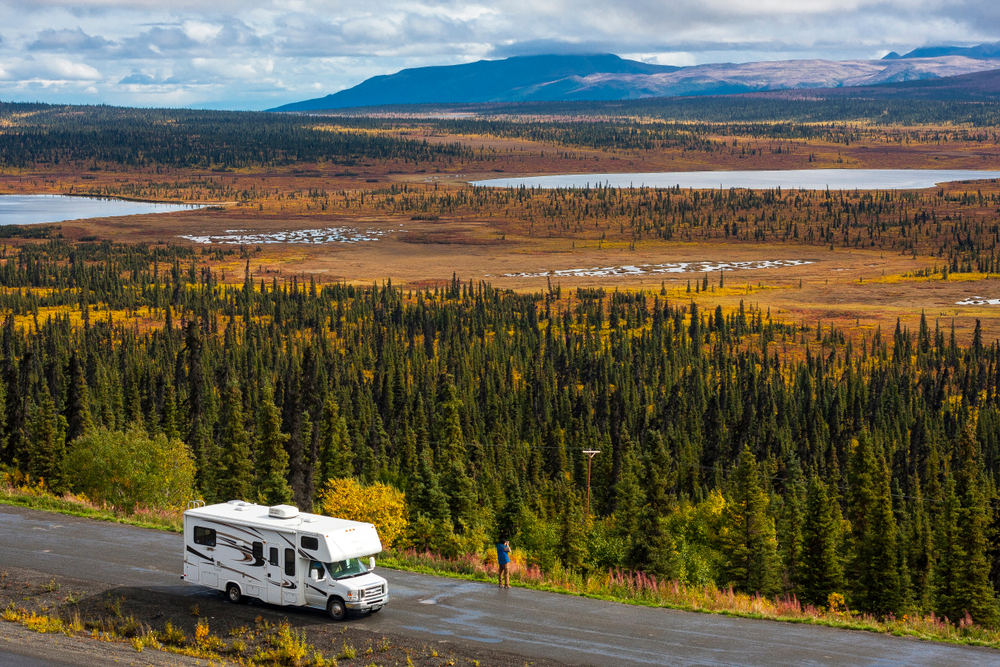
How Do Insurance Policies Differ Between Travel Trailers and RVs?
Thursday, September 27, 2018
Travel trailers and RVs hit the roads across America throughout the year to celebrate life, liberty, and the pursuit of memories. Besides fulfilling fantasies about the Great American Road Trip, RVs and travel trailers allow us to take a vacation and experience the joys of seeing new places, all from the comfort of a place we can call home, even just for a short while.
RVs and travel trailers allow us to go where we want, when we want, and save money on expensive hotels while we’re at it. Whether you are towing your travel trailer behind your vehicle or have invested in a live-aboard RV unit, each option gives you the chance to hit the road and make memories with yourself, your family, and your friends.
Insuring your RV or travel trailer is crucial for keeping these trips safe and secure. Whether you break out your RV or travel trailer for the entire summer or only bring it out a couple of times a year, having the right insurance policy can mean getting the help you need when you need it, and prevent you from being stranded on the side of the road to fend for yourself.
The Difference Between Travel Trailers and RVs
Travel trailers and RVs should be insured separately from your existing auto insurance policy. Many companies allow you to bundle these insurance policies, but don’t assume that your automobile insurance policy will automatically cover your other vehicles.
When looking at insurance policies, it’s important to understand the difference between a travel trailer and an RV. Since these vehicles are different, they will require their own special insurance policy to cover them from specific kinds of risks associated with their use.
Travel trailers are vehicles that can be towed by a car or a truck. Travel trailers can be detached from the towing vehicle at a campsite or other location, and the towing vehicle can be used to get around more conveniently. Different kinds of travel trailers or fifth wheel vehicles can be classified as a Class B or Class C recreational vehicle.
RVs are motorized vehicles that are a car and a home in one. Insurance policies that cover RVs are designed to provide a combination of car insurance coverage and homeowners insurance coverage. A converted bus, Motorhome, or vehicle up to 75 feet long are considered Class A recreational vehicles. These vehicles aren’t towed but could be used to tow a smaller vehicle for easier access to places a large vehicle like an RV wouldn’t fit.
Insuring Travel Trailers and RVs
Insuring your vehicle before you hit the road is an essential step in preparing for your next road trip. There can be differences in the insurance coverage you will need if you have a travel trailer versus a Motorhome-type RV. These differences depend on how much coverage you want, how long you use the vehicle, where you are going, and what additional coverages you want to add on.
Travel trailers vary in size, which can affect the cost of an insurance policy. RVs and travel trailers are larger than a regular car, and their size contributes to a higher risk of accidents when in use. Insurance for travel trailers and RVs is designed to not only keep the vehicle safe, as well as those who are in it but to keep your belongings safe as well. Your RV or travel trailer might have a mix of sporting goods, electronics, personal items, and other belongings that you use for your life on the road. If this stuff were to be damaged, stolen, or otherwise rendered not usable, it would be covered under your RV or travel trailer insurance policy. A standard auto insurance policy does not cover these items.
Additionally, most RV drivers are going to be using these vehicles outside of their general home area. RV insurance helps cover you, the vehicle, and your belongings when you are out of town or on holiday as part of a campsite or vacation liability coverage policy.
RV and travel trailer insurance policy coverage can include:
- Liability coverage
- Collision insurance
- OTC (other-than-collision)coverage
- Contents insurance
- Underinsured/uninsured motorist coverage
- Towing and roadside assistance
- Emergency expenses
- Total loss replacement
- And more.
Your insurance coverage costs will also depend on the make and model of your RV or travel trailer, your driving history, where you live, whether you are renting an RV or own your own, and whether you use this vehicle temporarily or long-term.
To learn more about travel trailer and RV insurance, contact our team at Protective Agency at (877) 739-9367. Our licensed insurance agents will be happy to answer any questions you have.
